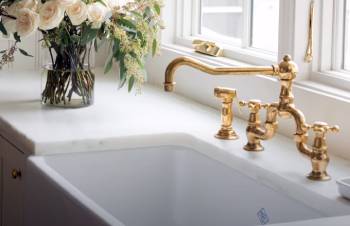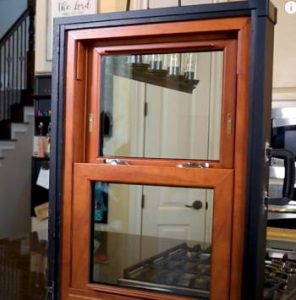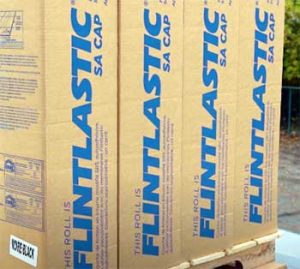Are you in the market for a new sink for your kitchen? If so, you might have come across Shaws Sinks, a popular and reputable brand known for its high-quality, elegant, and functional sinks.
In this article, we will dive into the world of Shaws Sinks, providing a comprehensive review of the pros and cons, as well as addressing some frequently asked questions.
The Shaws Sinks Story
Shaws Sinks has been around for more than a century, tracing its roots back to the industrial revolution in England. Founded by Arthur Shaw in 1897, the company is renowned for its traditional craftsmanship, attention to detail, and commitment to producing top-quality sinks.
Over the years, Shaws Sinks has become synonymous with timeless design, durability, and functionality.
The Pros of Shaws Sinks

- Timeless Design
One of the most significant selling points of Shaws Sinks is their timeless and classic design. These sinks are handcrafted and designed to complement various kitchen styles, whether you’re going for a modern, traditional, or farmhouse look. Their elegance and charm can instantly elevate the aesthetics of your kitchen.
- Durability
Shaws Sinks are built to last. The company utilizes a combination of fireclay and other high-quality materials, ensuring their sinks can withstand the test of time. This durability is backed up by a lifetime warranty, giving customers peace of mind knowing that their investment is protected.
Also Read: Fireclay and Granite Composite Sink
- High-Quality Craftsmanship
Shaws Sinks takes pride in its commitment to traditional craftsmanship. Each sink is handcrafted by skilled artisans who follow a meticulous process to ensure every product meets the highest standards. This dedication to quality is evident in the finished product, as Shaws Sinks are known for their attention to detail and flawless design.
- Wide Range of Styles and Sizes
Shaws Sinks offers a diverse selection of sinks to suit various needs and preferences. Whether you’re looking for a single or double bowl, an apron front or undermount style, or a small sink for a compact kitchen, there’s a Shaws Sink to meet your requirements.
The Cons of Shaws Sinks

- Price
One of the most significant drawbacks of Shaws Sinks is their price. These sinks are undeniably expensive, which might be a deal-breaker for some customers. However, it’s essential to consider the craftsmanship, quality, and durability you’re getting in return for the investment.
- Weight
Shaws Sinks, especially those made from fireclay, can be quite heavy. This means that installation may require additional support and may be more challenging than installing a lighter sink.
- Maintenance
Although Shaws Sinks are known for their durability, they do require proper care and maintenance to keep them looking their best. This includes regular cleaning, avoiding harsh chemicals, and using protective grids to prevent scratches.
Also Read: About Kohler 6488 and 6489 Kitchen Sink Comparison
Frequently Asked Questions (FAQs)
Shaws Sinks are manufactured in Darwen, England, where the company has been handcrafting sinks for more than a century. This commitment to local production and traditional craftsmanship is part of the company’s ethos and ensures the high quality of their sinks.
To clean a Shaw sink, use warm water, a soft cloth, and mild soap. Avoid using abrasive cleaners or harsh chemicals, as these can damage the sink’s finish. For stubborn stains, you can use a gentle cream cleanser or a solution of baking soda and water.
Farmhouse sinks are often more expensive than other types of sinks due to their size, material, and the level of craftsmanship involved in their production. The handcrafted nature of farmhouse sinks, such as those from Shaws Sinks, requires skilled artisans who dedicate time and effort to ensure each sink meets the highest standards.
Additionally, farmhouse sinks are often made from high-quality materials like fireclay, which adds to their cost.
Farmhouse sinks can be considered somewhat high maintenance compared to other types of sinks, mainly due to their material and design. Sinks made from fireclay or cast iron require proper care to maintain their finish and prevent chipping or staining. This includes regular cleaning with non-abrasive cleaners and using protective grids to prevent scratches. However, with proper care, a farmhouse sink can remain in excellent condition for many years.
There are several reputable companies that produce high-quality quartz sinks, including Elkay, Kraus, and Blanco. When choosing a quartz sink, consider factors such as design, size, color, and warranty to find the best option for your needs and preferences.
Fireclay and cast iron are both popular materials for kitchen sinks, but they have some key differences. Fireclay sinks are made by molding clay, glazing it, and firing it at high temperatures. This process results in a sink with a hard, non-porous surface that is resistant to scratches, stains, and heat. Fireclay sinks are known for their durability and timeless appearance.
Cast iron sinks, on the other hand, are made by pouring molten iron into a mold and then coating the sink with a layer of enamel. This creates a smooth, glossy surface that is easy to clean and resistant to stains and scratches. Cast iron sinks are also known for their durability, but they can be heavier and more challenging to install than fireclay sinks.
Final Thoughts on Shaws Sinks
In conclusion, Shaws Sinks offers an excellent selection of high-quality, handcrafted sinks that are both functional and visually appealing. While their price and weight might be a drawback for some customers, the timeless design, durability, and commitment to craftsmanship make Shaws Sinks a worthwhile investment for many homeowners.
By carefully considering the pros and cons outlined in this article, you can make an informed decision about whether a Shaws Sink is the right choice for your kitchen.



